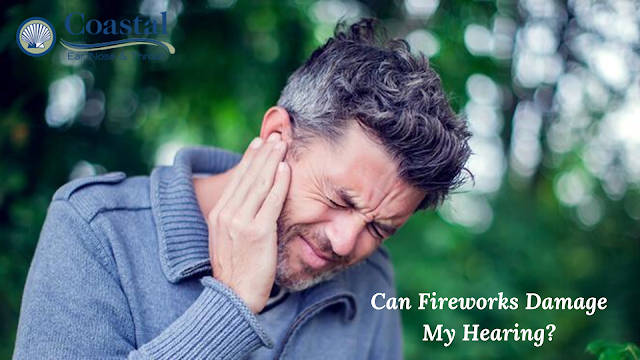Can Fireworks Damage My Hearing?

During the Summer evening of the Fourth of July, you’re most likely going to see fireworks in the sky. Whether you are watching professional fireworks or have purchased your own fireworks, hearing loss is a real risk to yourself and those around you. Babies should never be exposed to fireworks. An infant’s ear canal is much smaller than older children or adults. Therefore, the sound pressure roaring into the ear is much greater. To an infant, a sound that is not that loud to an adult may be 20 decibels louder to an infant. How to Protect Your Hearing Keep Distance from You and the Fireworks. Skip home displays and watch professional displays from a distance Bring earplugs, earmuffs and/or noise cancelling headphones Noise Induced Hearing Loss (NIHL) One of the top ways Americans lose their hearing is from noise induced activities. This may be a result from one’s occupation that include construction, airport attendant, nightclub worker, or even a racecar driver. This may cause tinnitus...



